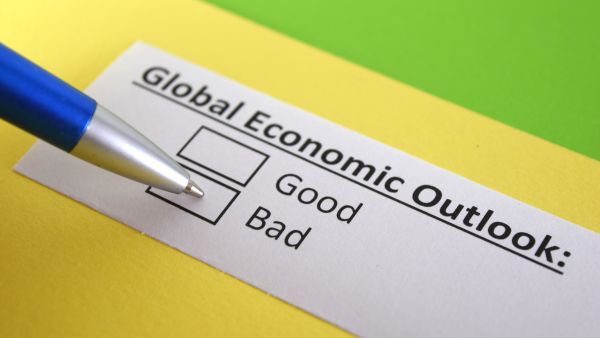ALBAWABA — "Gloomier" is the global economic growth outlook the International Monetary Fund (IMF) sees ahead of the G20 summit in Indonesia.
The Bali Summit, slated for November 15-16, comprises three main working sessions on food and energy security, digital transformation, and health.
The countries at the G20 summit represent around 85 per cent of the global GDP and about two-thirds of the world's population.
The IMF says high-frequency indicators confirm a global economic slowdown, citing a steady worsening in purchasing managers indices that are tracking a range of G20 economies.
An IMF report titled 'G20 report on Strong, Sustainable, Balanced, and Inclusive Growth' said continued fiscal and monetary tightening is likely needed in many countries to bring down inflation and address debt vulnerabilities.
The IMF in October warned that the global economy was headed for "stormy waters" and "the worst is yet to come".
In its report the IMF said it expects further policy tightening in many G20 economies in the months ahead that would continue to weigh on economic activity, particularly in the interest-sensitive housing and banking sectors.
"G20’s evolution is associated with financial crises. It began in the wake of the Asian financial crisis in 1999, and a decade later it was elevated to the Summit meeting in 2008 which again was a year of crisis in Europe and America. Its decision to commit spending worth $4 trillion to revive economies and efforts to avert trade protectionism in 2008-9 contributed to financial stability in the coming years," Dr. Rajan Kumar, School of International Studies, Jawaharlal Nehru University in Delhi told The Financial Express.
"But its cohesion was short-term, and Russia’s annexation of Crimea in 2014 invited the specter of a new Cold War, " he added.
The global economy has weakened due to three key main factors: persistently high and broad-based inflation, the weak growth momentum in China, and Russia's invasion of Ukraine.
The challenges that the global economy is facing are immense and weakening economic indicators point to further challenges ahead. However, with careful policy action and joint multilateral efforts, the world can move toward stronger and more inclusive growth, the IMF report said.
Global growth is projected to slow to 3.2 per cent this year and 2.7 per cent in 2023, necessitating tighter policy stances to facilitate adjustment to the new state of the world in order to offset the persistence of multiple global supply-side shocks, the IMF said.
"The surge in consumer prices that started last year has gathered pace in 2022, resulting in rates of inflation that have exceeded central bank targets in most G-20 economies," the IMF report said.
Citing the volatile new world environment, the IMF said “the challenges that the global economy is facing are immense and weakening economic indicators point to further challenges ahead".







